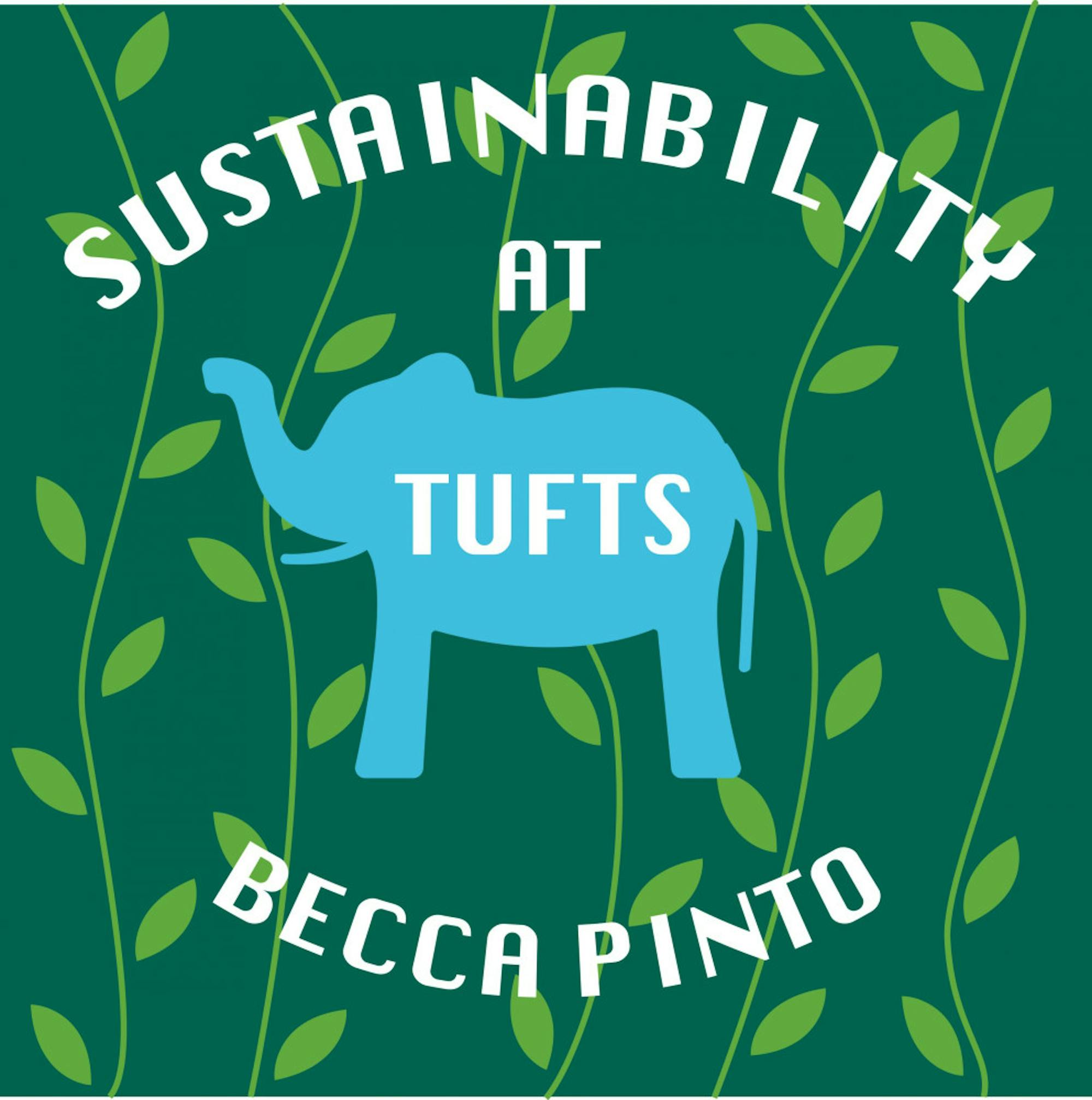When I first visited Tufts as a senior in high school, I remember running into a group of students who were selling some of their old clothes on the President's Lawn. Not only were the clothes super cool, the prices were also very low. As they explained, this was because all they wanted was to make sure the clothes were going to get reused. They didn’t care about making money or anything. As we walked away, my mother whispered to me that the students here are really weird, and I shouldn’t apply. Obviously, I ignored her and applied anyway.
Now that I’m at Tufts, I’m amazed at how many ways there are for students to shop for clothes in sustainable ways, such as Tufts Jumbo Cycle. Upcycling clothing was one of the things I got to learn about during my conversation with Allie Agnew, an Eco Rep currently involved in the Environmental Health and Sustainability area of the Eco Rep program. The Eco Reps are divided into different areas such as Waste Diversion and Sustainable Fashion. The process to join Eco Reps for next semester will begin in November when applications go out.
This semester, the Eco Reps are continuing their focus on student engagement. If you’ve seen their green tables outside the dining halls, you know about their raffles where you can answer a question and get the chance to earn $10 worth of Jumbo Cash. These questions will help the program learn more about what students want and how it should be advocating for their interests. On a similar note, returning students may also have noticed that Meatless Mondays are a thing of the past.
“As an organization, we decided it was a little problematic to force people to eat stuff like that. And also, Meatless Monday sounds very negative instead of positive and nobody wants to be forcing you to be doing anything,” Agnew said.
Agnew also cited a “bigger focus on environmental justice now.” Whenever a new event is being planned, there’s now a section on the application where the writer goes into detail about how their proposed event will promote environmental justice. This way, social justice will be ingrained in the events that the Eco Reps put on, not just an afterthought.
One way we can be more sustainable in our everyday lives is recycling, which Agnew described as one of the most important ways she lives sustainably. It’s important to note that once a non-recyclable item is in a bin, it contaminates the whole thing which then must be thrown into the trash. You can recycle plastics, such as water bottles or fruit containers, and paper. Some things you can’t recycle are black plastic, plastic bags, Saran Wrap bags, magazines or tin foil. Sadly, Red Solo cups also cannot be recycled, Agnew added.






